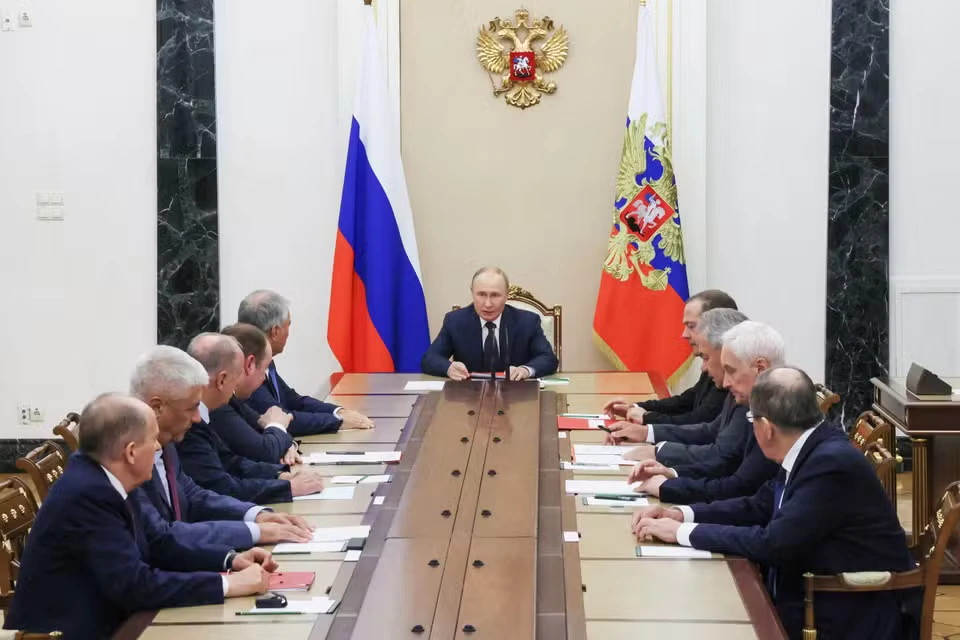According to Le Monde, the upcoming summit between Russian President Vladimir Putin and U.S. President Donald Trump, scheduled for August 15 in Alaska, has become a true gift for Russian propagandists. Commentators close to the Kremlin see this meeting not only as a symbol of Russia’s return to the global stage but also as a harbinger of a possible lifting of sanctions — especially in the energy sector — and, as they claim, “forgiveness” for the actions of the Russian army in Ukraine since February 2022.
“A qualitative shift” in Moscow–Washington dialogue
Dmitry Suslov, an expert at the Valdai Club, called the upcoming meeting “a large-scale summit” that demonstrates a “qualitative change” in the relations between the two countries. According to him, the main goal is to erase the accumulated “negative baggage” and bring U.S.-Russian ties to “a qualitatively new level.” Speaking to TASS on August 10, he said the event could mark the end of the “hybrid war” that began with Joe Biden’s arrival in the White House and even close the chapter of confrontation dating back to the Obama era.
Interestingly, the war in Ukraine, launched by Russia, is not mentioned in these comments. Instead, Suslov refers to it as the “Ukrainian question” and welcomes the fact that it will be discussed exclusively in a bilateral format — without Ukraine and its allies. The choice of Alaska, “as far from Europe and Ukraine as possible, yet as close to Russia as possible,” is explained as Washington’s attempt to underline the strictly bilateral nature of the summit.
Sanctions before peace
Both Vladimir Putin and Donald Trump, according to Russian commentators, agree that normalizing relations between the two powers takes precedence over seeking peace. For the Kremlin, the main goal remains the removal of sanctions, which, sources say, “are strangling the economy” and pushing the country toward recession.
Analyst Sergei Poletayev told Russia Today that Trump is returning to dialogue with Putin “under the pressure of the failure of the oil embargo.” He insists: “If the meeting takes place, the Russian president will arrive in a much stronger position than just a few months ago.”
Back in the spring, Poletayev recalls, Trump’s pressure for a peace deal was seen as a personal whim, while the so-called “party of war” in the U.S. and the globalists still had strong positions. Among their tools, he cites the sanctions package by Senator Lindsey Graham, new U.S. weapons deliveries to Kyiv, and initiatives from French President Emmanuel Macron and British Prime Minister Keir Starmer to send Western troops to Ukraine. “But the page has been turned,” he says. “The Kremlin’s influence has never seemed so strong.”
The Arctic and the shadow of a deal
Le Monde pays special attention to the August 6 visit to Moscow by Steve Witkoff, Donald Trump’s special envoy, who met with Putin for the fifth time. According to the paper, each time Witkoff hinted at the benefits of a “thaw” in relations and offered large-scale trade deals, especially in the field of Arctic oil exploration. He was accompanied by Kirill Dmitriev, head of the Russian Direct Investment Fund and a trusted Putin associate, known to be a close friend of the president’s daughter Katerina Tikhonova.
Dmitriev has long lobbied for joint projects in the Arctic and other regions, seeking the lifting of sanctions. In his X account, he welcomed the summit: “With its Orthodox roots, forts, and fur trade, Alaska — born Russian — is a reminder of our historical ties. The U.S. is also an Arctic nation.” This reference to Alaska’s Russian past recalls its sale to the United States in 1867 for $7 million (about $120 million in today’s money) by Tsar Alexander II, who was seeking to replenish state coffers drained by the Crimean War.
Economic backdrop: troubling signs for the Kremlin
Despite the upbeat rhetoric, Le Monde notes that the Russian economy is facing a difficult period. Even without a formal oil embargo, oil export revenues fell by 18.5% in the first seven months of the year. Meanwhile, the overvaluation of the ruble has dealt a heavy blow to the budget: the federal deficit has reached 4.9 trillion rubles ($61.4 billion) — roughly 30% higher than the government had forecast. In such conditions, lifting sanctions could be a lifeline for the Kremlin — if Donald Trump decides to take that step.
This article was prepared based on materials published by Le Monde. The author does not claim authorship of the original text but presents their interpretation of the content for informational purposes.
The original article can be found at the following link: Le Monde.
All rights to the original text belong to Le Monde.


















